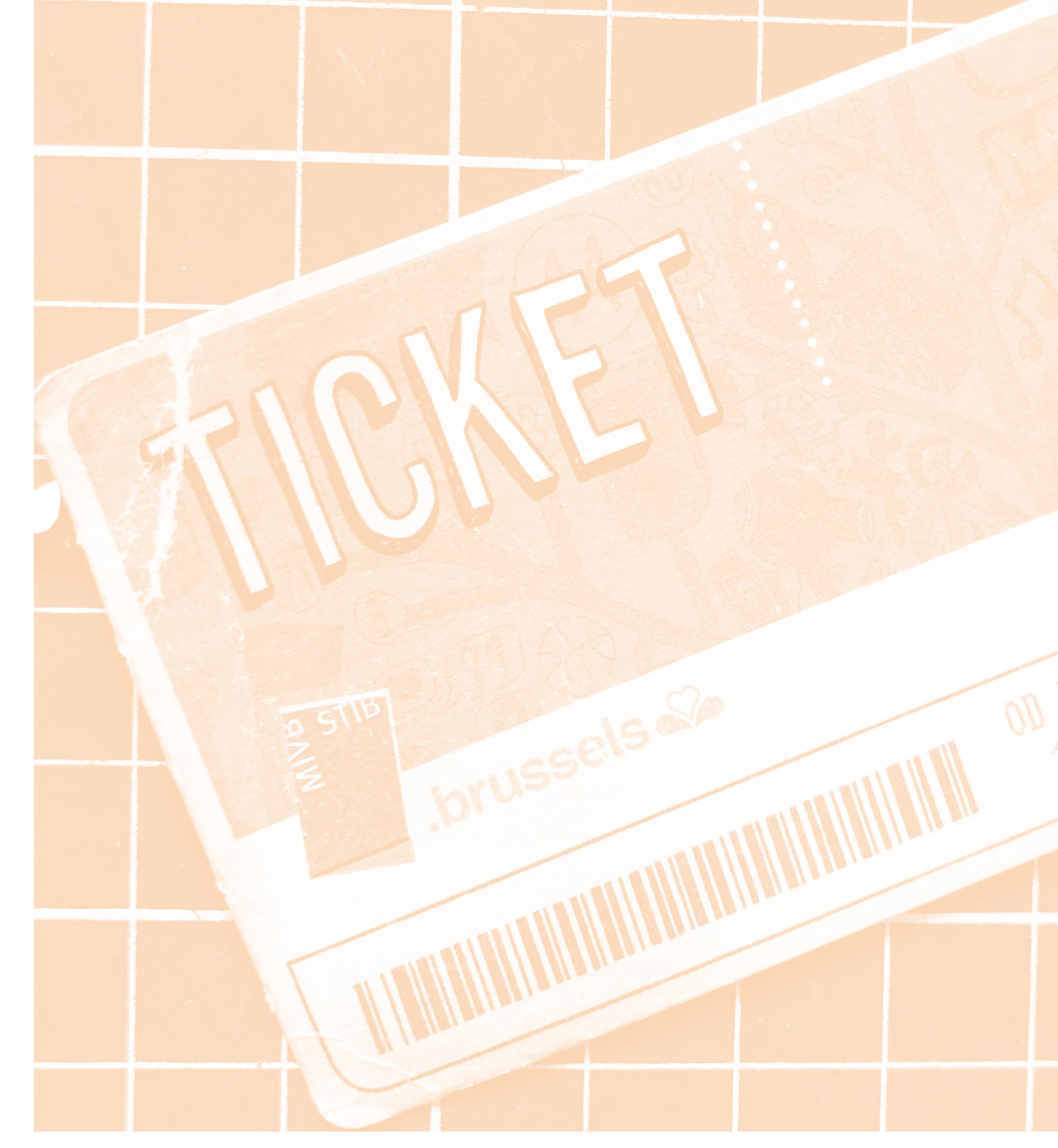Edited by Lauren McGovern
Published in 2023
by 24Ours
Dun
Laoghaire
Ireland
01 2857593
24Ours.ie
24Ours have asserted their right under the Copyright, Designs and Patents Act 1998 to be identified as author of this work.
All rights reserved. No part of this publication may be reproduced or transmitted in any form or by any means, electronic or mechanic.
ISBN: 978-3-16-148410-0
The Idle Bible

Content
Foreword Lockdown Leisure In Praise of Idleness Slacker Scripture The Gospel of Growth Income Inequality 7 10 20 34 38 44
Foreword
Nobody wants to get off their fucking ass and work anymore.
8 hours for work, 8 hours for rest, 8 hours for what you will. But that’s not true, is it? Somewhere along the way, we lost the concept of what you will. Tools to accelerate productivity should alleviate our responsibilities, but have only added to them. Any hour that is freed up must be spent elsewhere. Your own home is no longer a refuge. The pressure to pick up a side hustle, respond to emails and texts on your phone and cultivate a personal brand on social media haunts your reast hours, even if you don’t notice it. Each individual should have the entrepreneurial initiative to maximise every minute of their day for personal gain. It is exhausting.
No hate to anyone who wants to live like that but we know we don’t, and chances are if you’re reading this you don’t either. If that is indeed the case, we have great news! You don’t have to! The 24Ours project demands the right to rest. To do as you please. To wander aimlessly. To take the long way around. To take unneccessary journeys. To do nothing at all. This book features essays and statistics on the topics of toxic productivity, how to rest and how idle

6
time is essential for creativity. Use this to convert others. We are strong advocates of the 4 day working week, but we don’t believe that it alone is the solution. We want you to fully reclaim that 24 hours once it’s been granted to you. Your 5th day is sacred, treat it as such.
Rest is not radical, it is an absolute necessity. We all have 24 hours. Reclaim yours.

7 Foreword

Lockdown Leisure

I
Lauren Mc Govern
Lockdown Leisure
In a time of conflicting information and a lack of general understanding of this new virus, media provided comfort for many. The abundance of uncertainty felt by the general public drove many to seek comfort in the familiar. The new limitations of lockdowns, however, left limited options for escapism. Larger scale escapist activities such as concerts were replaced by watching TikToks on your phone. The short form video hosting site grew rampantly during the pandemic. The almost dystopic reality going on outside in the world created a yearning for a world outside of reality and nostalgia for simpler times. One of the results of this was the explosion of the online cottagecore trend. Visuals comprising of pastoral landscapes, cosy homesteads and old fashioned handicrafts simulated a self-imposed isolation preferable to the compulsory isolation that was being experienced. These aspirations were for a reality separate to that which was being experienced mingled with the sentiments of utopic desire.1
10
The sudden involuntary lifestyle change thrust upon the world’s population in the early days of the Covid-19 pandemic left many people feeling unstable and confused.
1. Atanasova, Aleksandrina. Reexamining utopia in contemporary consumption: conceptualization and implications for marketing. AMS Review, 2021.
2. Taylor, Cheryl and Lafarge, Caroline and Cahill, Sharon and Milani, Raffaella and Görzig, Anke. Living through lockdown: A qualitative exploration of individuals’ experiences in the UK. Health Soc Care Community, 2022.
3. Grandey, A. A. and Sayre, G.M. and French, K. A. A Blessing and a Curse”: Work Loss During Coronavirus Lockdown on ShortTerm Health Changes via Threat Recovery. Journal of Occupational Health Psychology, 22 July 2021.
Research conducted through public surveys concluded that there were four primary themes identified in the responses of the UK public to the outbreak of Covid-19 and the lockdowns that followed: Health and wellbeing, social connectedness and belonging, employment and finance, and personal and collective values.2 Separate studies would suggest that this also applied to other jurisdictions including the US.3 Each of these themes could contribute to our understanding of the sudden upsurge of popularity in cottagecore media and activities throughout the earlier lockdowns, particularly in western states such as the UK and the US.
2015.
6. Wood, Zoe. “A good yarn: UK coronavirus lockdown spawns arts and craft renaissance.” theguardian. com. 2020.
With regards to health and wellbeing, the area of mental health and wellbeing are of particular interest. Many individuals reported feelings of anxiety and lack of control in response to the pandemic, regarding both the health of loved ones and the loss of routine and structure in their lives.4 Where people could not control the circumstances unfolding around the world, they could control inside their own home and take some ownership of their own daily routine. There is evidence to suggest that creative activities, including craft, can be a source of stability and comfort during times of stress and uncertainty.5 Crafting activities that became encouraged by enthusiasts of cottagecore during the lockdown may have manifested as a response to lockdown anxiety, allowing individuals to alleviate feelings of stress and add a sense of routine to their days.
Search requests for “knitting projects” increased by as much as 400% during the first UK lockdown, and sewing projects went up by 300%.6 Figure 2 is an example of the short form TikTok videos that increased in popularity at
11 Lockdown Leisure
4. Taylor, Cheryl and Lafarge, Caroline and Cahill, Sharon and Milani, Raffaella and Görzig, Anke.
5. Kenning, Gail. Fiddling with Threads: Craft-based Textile Activities and Positive Well-being. TEXTILE,
I want to watch wisteria grow

“
right over my bare feet.”
 —Taylor Swift, The Lakes
—Taylor Swift, The Lakes
this time. Watching a video like this in itself could then create a brief sense of mindfulness and relaxation for the viewer. The video is captioned “part 1! joining the squares!” This suggests it was part of a mini-series of videos, documenting the crafting of the sweater. The act of keeping up with someone creating their own garment could allow a sense of continuity. The garment itself is also quite comforting and pleasing to look at, made up of a thick crochet wool and warm colour palette. It also appeals to individuals that actually engage in these quiet crafting activities themselves beyond just observing them, “these hobbies make sense to engage in to find that sense of control: start with raw materials, follow the directions as stated and reach your desired outcome.”7 The average person may have had little control during the pandemic, but through craft activities could feel as though they had some agency in their own lives and practice mindfulness.
Social isolation and a lack of connectedness was reported by multiple people as a result of lockdowns. Some used technology to supplement this, staying in touch with friends through video calls or doing quizzes to simulate social activities.8 The use of social networks including Twitter and Instagram increased by 2% from January to March, and the uploading of self-created content went up by 7% during the same period.9 Cottagecore content has a strong online presence and it is not unlikely that it could have provided a sense of community for people who were feeling isolated at the time. Alternatively, the rural imagery often associated with cottagecore could also imply a selfimposed isolation. The reality of compulsory isolation is daunting, but treating it as a retreat from the busy day to day of regular life could allow a sense of control and even frame it as a positive time of rest from work.
14
7. Taylor, Cheryl and Lafarge, Caroline and Cahill, Sharon and Milani, Raffaella and Görzig, Anke.
8. “Impact of Covid-19 on Virtual Life.” CSO.ie. Web. June 2020.
9. Atanasova, op.cit., p. 24; Liquid utopias are defined as marketmediated expressions of individuals’ desires to re- imagine and reconstruct reality, and to re-frame the present.
Start with raw materials.”

“
Employment and finance were large areas for concern throughout the pandemic. Those non-essential industries dependent on in person interaction like hospitality and events were hit hard with sudden unemployment. The UK and Ireland respectively introduced Furlough and Pandemic Unemployment Payments to attempt alleviate this strain on the population. For those that qualified for these payments it was an opportunity for pause and reflection. People who had previously not had time to indulge in time consuming hobbies were free of work and social obligation and could take the time to live slowly without some of the stress of income and work.
The lockdown was also a catalyst for individuals and the collective to reconsider their values and priorities. All of the above points contributed to a re-evaluation of lifestyle and what was considered acceptable for many even after the pandemic. The Covid-19 lockdowns acted as a catalyst for frustration with the systems we live in and desire for a more human centred culture as opposed to capital focused. Atanasova posits that liquid utopias – as were theorised by Bardhi and Eckhardt – place more of an emphasis on the experiences of the individual as opposed to a wider community and are placed firmly in the present rather than the future.10 Liquid utopias are lived in the present as opposed to being lived towards, with an emphasis on immediacy and are hyper-individualised. It is not illogical that a mass isolation event would trigger idealised – and perhaps impractical – realities that are focused heavily on the individual and individual betterment and a need for an immediate form of escape. Limited options for socialisation along with a reasonable apprehension of interacting with individuals from outside of your own household – along with an abundance of spare time due
16
10. O’Connor, Erin. “Yes, there is panic. But I’m embracing a slower life.” TheWashingtonPost.com. 23rd March 2020.
to remote work or study – resulted in a massive uptake in solo activities from baking to sewing to hours spent scrolling through TikToks.
While it was ultimately a traumatic and distressing point in time, it was also the first extended period of free time for many. The lack of a work commute resulting from remote work allowed for more personal time in the every day. Having more agency to structure your own day – along with a total reduction of social commitments - allowed people to indulge in their own personal interests. Solo tasks such as baking, knitting and embroidery were popular among the isolated with a sudden abundance of free time. The sentiment that “it took a pandemic to slow life down” was cause for re- evaluation for many.14 The hyper productive grind culture that was all consuming prior to Covid-19 was now unthinkable for people who had had a taste of slower living. The cottagecore way of living manifested as a response to this aversion to hyper capitalistic grind culture. Not unlike the development of the Arts and Crafts movement as a response to the industrial revolution, cottagecore looks to the past to find a balanced, human focused way of being. This was coupled with multiple governments - including in Ireland and the UK – distributing payments to the public as a response to the loss of employment in many industries affected by the pandemic, particularly hospitality and non-essential retail.
The ability of government to roll out a payment not unlike a universal basic income in a time of crisis begs the question: why was this not possible before?
17 Lockdown Leisure

In Praise of Idleness

Bertrand Russell II
In Praise of Idleness
Like most of my generation, I was brought up on the saying: ‘Satan finds some mischief for idle hands to do.’ Being a highly virtuous child, I believed all that I was told, and acquired a conscience which has kept me working hard down to the present moment. 1
But although my conscience has controlled my actions, my opinions have undergone a revolution. I think that there is far too much work done in the world, that immense harm is caused by the belief that work is virtuous, and that what needs to be preached in modern industrial countries is quite different from what always has been preached. Everyone knows the story of the traveler in Naples who saw twelve beggars lying in the sun (it was before the days of Mussolini), and then offered a lira to the laziest of them. Eleven of them jumped up to claim it, so he gave it to the twelfth. This traveler was on the right lines. But in countries which do not enjoy Mediterranean sunshine idleness is more difficult, and a great public propaganda will be required to inaugurate it.
Before advancing my own arguments for laziness, I must dispose of one which I cannot accept. Whenever a person
20
1. Russell, Bertrand. “In Praise of Idleness.”
Satan finds some mischief for idle hands to do.”


“
who already has enough to live on proposes to engage in some everyday kind of job, such as school-teaching or typing, he or she is told that such conduct takes the bread out of other people’s mouths, and is therefore wicked. If this argument were valid, it would only be necessary for us all to be idle in order that we should all have our mouths full of bread. What people who say such things forget is that what a man earns he usually spends, and in spending he gives employment. As long as a man spends his own income, he puts just as much bread into people’s mouths in spending as he takes out of other people’s mouths in earning.
The real villain, from this point of view, is the man who saves. If he merely puts his savings in a stocking, like the proverbial French peasant, it is obvious that they do not give employment. If he invests his savings, the matter is less obvious, and different cases arise. All this is only preliminary. I want to say, in all seriousness, that a great deal of harm is being done in the modern world by belief in the virtuousness of work, and that the road to happiness and prosperity lies in an organized diminution of work.
Throughout Europe, though not in America, there is a third class of men, more respected than either of the classes of workers. There are men who, through ownership of land, are able to make others pay for the privilege of being allowed to exist and to work. These landowners are idle, and I might therefore be expected to praise them. Unfortunately, their idleness is only rendered possible by the industry of others; indeed their desire for comfortable idleness is historically the source of the whole gospel of work. The last thing they have ever wished is that others should follow their example.
22
enormously the amount of labor required to secure the necessaries of life for everyone. This was made obvious during the war. At that time all the men in the armed forces, and all the men and women engaged in the production of munitions, all the men and women engaged in spying, war propaganda, or Government offices connected with the war, were withdrawn from productive occupations. In spite of this, the general level of wellbeing among unskilled wage-earners on the side of the Allies was higher than before or since. The significance of this fact was concealed by finance: borrowing made it appear as if the future was nourishing the present. But that, of course, would have been impossible; a man cannot eat a loaf of bread that does not yet exist. The war showed conclusively that, by the scientific organization of production, it is possible to keep modern populations in fair comfort on a small part of the working capacity of the modern world. If, at the end of the war, the scientific organization, which had been created in order to liberate men for fighting and munition work, had been preserved, and the hours of the week had been cut down to four, all would have been well. Instead of that the old chaos was restored, those whose work was demanded were made to work long hours, and the rest were left to starve as unemployed. Why? Because work is a duty, and a man should not receive wages in proportion to what he has produced, but in proportion to his virtue as exemplified by his industry.
The idea that the poor should have leisure has always been shocking to the rich. In England, in the early nineteenth century, fifteen hours was the ordinary day’s work for a man; children sometimes did as much, and very commonly did twelve hours a day.
23 In Praise of Idleness
Their bones need toil “

their characters no less.”
—Eavan
Boland, Famine Road

Modern technique has made it possible to diminish enormously the amount of labor required to secure the necessaries of life for everyone. This was made obvious during the war. At that time all the men in the armed forces, and all the men and women engaged in the production of munitions, all the men and women engaged in spying, war propaganda, or Government offices connected with the war, were withdrawn from productive occupations. In spite of this, the general level of well-being among unskilled wage-earners on the side of the Allies was higher than before or since. The significance of this fact was concealed by finance: borrowing made it appear as if the future was nourishing the present. But that, of course, would have been impossible; a man cannot eat a loaf of bread that does not yet exist.
The war showed conclusively that, by the scientific organization of production, it is possible to keep modern populations in fair comfort on a small part of the working capacity of the modern world. If, at the end of the war, the scientific organization, which had been created in order to liberate men for fighting and munition work, had been preserved, and the hours of the week had been cut down to four, all would have been well. Instead of that the old chaos was restored, those whose work was demanded were made to work long hours, and the rest were left to starve as unemployed. Why? Because work is a duty, and a man should not receive wages in proportion to what he has produced, but in proportion to his virtue as exemplified by his industry.
The idea that the poor should have leisure has always been shocking to the rich. In England, in the early nineteenth century, fifteen hours a day was the ordinary day’s work for
26
a man; children sometimes did as much, and very commonly did twelve hours a day. When meddlesome busybodies suggested that perhaps these hours were rather long, they were told that work kept adults from drink and children from mischief. When I was a child, shortly after urban working men had acquired the vote, certain public holidays were established by law, to the great indignation of the upper classes. I remember hearing an old Duchess say: ‘What do the poor want with holidays? They ought to work.’ People nowadays are less frank, but the sentiment persists, and is as such the source of much of our current economic confusion.
If the ordinary wage-earner worked four hours a day, there would be enough for everybody and with no unemploy-ment -- assuming just a certain very moderate amount of sensible organization. This idea shocks the wellto-do, because they are convinced that the poor would not know how to use so much leisure. In America men often work long hours even when they are well off; such men, naturally, are indignant at the whole idea of leisure for wage-earners, except as the extremerly grim punishment of unemployment; in fact, they dislike leisure even for their sons.
27 In Praise of Idleness
“
If the ordinary wage-earner worked four hours a day, there would be enough for everybody and with no unemployment .”
“

What do the wantpoorwith holidays?”
Oddly enough, while they wish their sons to work so hard as to have no time to be civilized, they do not mind their wives and daughters having no work at all. The snobbish admiration of uselessness, which, in an aristocratic society, extends to both sexes, is, under a plutocracy, confined to women; this, however, does not make it any more in agreement with common sense.
The wise use of leisure, it must be conceded, is a product of civilization and education. A man who has worked long hours all his life will become bored if he becomes suddenly idle. But without a considerable amount of leisure a man is cut off from many of the best things. There is no longer any reason why the bulk of the population should suffer this deprivation; only a foolish asceticism, usually vicarious, makes us continue to insist on work in excessive quantities now that the need no longer exists.
In a world where no one is compelled to work more than four hours a day, every person possessed of scientific curiosity will be able to indulge it, and every painter will be able to paint without starving, however excellent his pictures may be. Young writers will not be obliged to draw attention to themselves by sensational pot-boilers, with a view to acquiring the economic independence needed for monumental works, for which, when the time at last comes, they will have lost the taste and capacity. Men who, in their professional work, have become interested in some phase of economics or government, will be able to develop their ideas without the academic detachment that then makes the work of university economists often seem lacking in reality. Medical men will have the time to learn about the progress of medicine, teachers will not be exasperatedly
29 In Praise of Idleness
struggling to teach by routine methods things which they learnt in their youth, which may, in the interval, have been proved to be untrue.
Above all, there will be happiness and joy of life, instead of frayed nerves, weariness, and dyspepsia. The work exacted will be enough to make leisure delightful, but not enough to produce exhaustion. Since men will not be tired in their spare time, they will not demand only such amusements as are passive and vapid. At least one per cent will probably devote the time not spent in professional work to pursuits of some public importance, and, since they will not then depend upon these pursuits for their livelihood, their own originality will be unhampered, and there will be no need to conform to the standards set by elderly pundits. But it is not only in these exceptional cases that the advantages of leisure will appear. Ordinary men and women, having the opportunity of a happy life, will become more kindly and less persecuting and less inclined to view others with suspicion. The taste for war will die out, partly for this reason, and partly because it will involve long and severe work for all. Good nature is, of all moral qualities, the one that the world needs most, and good nature is the result of ease and security, not of a life of arduous struggle. Modern methods of production have given us the possibility of ease and security for all; we have chosen, instead, to have overwork for some and starvation for others. Hitherto we have continued to be as energetic as we were before there were machines; in this we have been foolish, but there is no reason to go on being foolish forever.
30
9 to 5
Yeah, they got you where they want you
There's a better life And you think about it, don't you?”
31 In Praise of Idleness
“
—Dolly Parton, 9 to 5

Slacker Scripture
 Lauren Mc Govern
Lauren Mc Govern
III
Slacker Scripture
1. These are only suggestions, do whatever you want with your time that is literally our dream for you.
Picture it: now you’ve gotten your extra day, your 24 hours a week have been clawed back. What do you do with that time now? Don’t allow your new freedom to be swallowed up in the vast sea of productivity.
It is no small task to unlearn the guilt we feel about being unproductive. It stretches back to the literal days of colonisation so it is well and truly lodged in there! Rewiring your brain is simply a matter of practice. 1 First things first: the morning routine. What does your average morning look like? Take the things you would usually rush or forego in the name of saving time. If it’s a quick shower or a dry shampoo job, give yourself a longer shower. If it’s a coffee to go try to sit and enjoy your coffee slowly instead. Starting your day in a relaxed state sets you up properly for a full day of nothing.
Next order of business: Ambling. Doing nothing doesn’t have to mean sitting on the couch all day (not that we don’t advocate for that). This time is for anything you wouldn’t usually do because of that little voice in the back of your head saying you should get something more important done instead or that it’s a waste of time. Wandering around the town with no particular agenda is perfect. From window shopping, to people watching, to getting on a bus to nowhere, there are plenty of options for slacker excursions. Last of all, for your consideration: Embrace boredom.
34
If doing nothing on your newfound sabbath is boring for you, that’s okay! At this point in time boredom is a luxury many of us can’t afford. I would love to be bored, honestly. So if you are one of the lucky few that has achieved that higher state of being, embrace it! Doodle on your forearm. Stand in the sun. Wander around your house without clear intent. Become comfortable in your own boredom.


The Gospel of Growth
 Jenny Odell
Jenny Odell
IV
The Gospel of Growth
In nature, things that grow unchecked are often parasitic or cancerous. And yet, we inhabit a culture that privileges novelty and growth over the cyclical and the regenerative. Indeed our very idea of productivity is premised on the idea of producing something new, whereas we do not tend to see maintenance and care as productive in the same way.
I often think of the Maintenance Manifesto, by the artist Mierle Laderman Ukeles. Her well known pieces include Washing/Tracks/Maintenance: Outside, a performance in which she washed the steps of the Wadsworth Atheneum, and Touch Sanitation, in which she spent 11 months shaking hands with and thanking New York City’s 8,500 sanitation men, in addition to interviewing and shadowing them. She has in fact been a permanent artist in residence with the New York sanitation department since 1977. Ukeles’ interest in maintenance was partly occasioned by her becoming a mother in the 1960s. In an interview she explained, “Being a mother entails an enormous amount of repetitive tasks. I became a maintenance worker. I felt completely abandoned by my culture because it didn’t
38
Modern obsession with perpetual growth only favours the few, with no concern with what is actually beneficial to the average person. Any progress we make is only ever rewarded with more work and less quality time for ourselves.
1. Odell, Jenny. “How to waste time.” Medium.com. 2020.
have a way to incorporate sustaining work.” Her 1969 Maintenance Manifesto is actually an exhibition proposal in which she considers her own maintenance work as the art. She says, “I will live in the museum and do what I customarily do at home with my husband and my baby, for the duration of the exhibition … My work is the work.”
The life force is concerned with cyclicality, care, and regeneration; the death force sounds a whole lot like “disrupt.” Of course some amount of both are necessary, but one is routinely valorized, not to mention masculinized, while the other goes unrecognized because it has no part in “progress.”


we inhabit a culture that privileges novelty and growth over the cyclical and the regenerative.”
“ 39 The Gospel of Growth

“
I ain’t had a smoke break in about two days All I got is these broken clocks I ain’t got no time.”
—SZA, Broken Clocks
The removal of economic security for working people — 8 hours for work, 8 hours for rest, 8 hours for what we will — dissolves those boundaries so that we are left with 24 potentially monetizable hours that are sometimes not even restricted to our time zones or our sleep cycles.
In a situation where every waking moment has become pertinent to our making a living, and when we submit even our leisure for numerical evaluation via likes on Facebook and Instagram, constantly checking on its performance like one checks a stock, monitoring the ongoing development of our personal brand, time becomes an economic resource that we can no longer justify spending on “nothing.” It provides no return on investment; it is simply too expensive.
Unless there’s something specifically about you or your job that requires it, there is nothing to be admired about being constantly connected, constantly potentially productive the second you open your eyes in the morning — and in my opinion, no one should accept this, not now, not ever. In the words of Othello: “Leave me but a little to myself.”
41 The Gospel of Growth

Income Inequality

V
Lauren Mc Govern
Income Inequality
The countryside has long been seen as a “place of retreat, innocence, and healthfulness” where the “urban and suburban middle class are entitled to escape.”1 As discussed earlier, the onset of the pandemic created a desire for such escape from the reality of the virus and restrictions. The pandemic was not something that everyone could escape from, however. The Covid-19 virus disproportionately affected people of colour, migrants, and the poor.2 Essential and frontline workers were not afforded the opportunity to stay at home and avoid the virus. Essential workers included health professionals, other health employees, defence and public administration, retail sales and transport operatives. These groups composed 22.01% of all Irish employees. The majority of carers were female and a significant portion were migrants. 30% of workers in Irish meat plants were immigrants during this period. Employers in these industries could bypass responsibility for the wages and working conditions of their employees as they were often
44
It cannot be understated that those with an abundance of time are the new wealthy among us. Convenience was once a luxury, but it has become a necessity for those of us whom cannot afford to give away our time.
1. Kay, J.B. and Wood, Helen. The Race for Space: capitalism, the country and the city in Britain under Covid 19 Continuum, 2022.
2. Kay, J.B. and Wood, Helen.
3. Wickham, James. “Essential workers: visible and invisible, organised and unorganised”. Tasc.ie. Web. 2022.
agency workers, meaning they had less rights and could be more easily exploited by employers.3This was not unique to Ireland,in the US 41.2% of frontline workers were black, Hispanic, Asian-American or otherwise non-white. More than one third of frontline workers were living in lowincome families.4
Looking at these numbers, the vision of lockdown explored earlier looks increasingly privileged and out of touch with reality. The comparison of the frivolous cottagecore aesthetics to Marie Antoinette and her rural escapes also feels increasingly appropriate. In the way that Marie Antoinette’s muslin dresses and pastimes at Hameau de la Reine were simply costume and fanciful roleplay, it is clear why some would feel the same about the imagery depicted on cottagecore Instagram and TikTok accounts. The division of workers into essential or frontline versus nonessential created a class divide that, as previously discussed, favoured some of the more privileged members of society. Spaces with cottagecore media were found to be a retreat from the relentless nature of Covid-19 updates. The curated nature of social media and the escapism inherent to cottagecore created the illusion that cottagecore content creators or other individuals engaging with them were insulated from the negative consequences of the pandemic and lockdown to those who have no other choice as a consequence of being an essential worker. This effect was magnified further by public figures engaging with rural romanticism.
The Guardian depicts an image of David Beckham taken from his Instagram that was featured in an article online for the Guardian. Most cottagecore imagery is more distinctly feminine, men are few and far between while browsing the
45 Income Inequality
4. Rho, Hye Jin and Brown, Hayley and Fremstad, Shawn. A Basic Demographic Profile of Workers in Frontline Industries. CEPR, 2020.
5. Elan, Priya “David Beckham leads the way as men flock to ‘cottagecore’ look.” The Guardian.
of frontline workers were living in low-income families

1
3
/
tags online. The subtitle describing the trend as conveying a “more romanticised ideal of masculinity” is of interest, as the image shown seems to depict a traditional form of masculinity that still very much exists in rural areas.5 That is not to say that all rural men walk around in flatcaps with staffs and thick knit sweaters, but that for many rural – particularly agricultural – workers, Beckham’s images are not from some fantasy world. The article does later elaborate that Beckham has idealised the agricultural worker and reimagined himself “as the gamekeeper from Lady Chatterley’s Lover.”6 This seems to be more-so that Beckham has romanticised agricultural living as opposed to masculinity in its whole. This sentiment certainly rang true with individuals that live with the realities of rural life on a daily basis. This article received a response that was later posted to the letters page of the Guardian:
“Thanks to your correspondent for introducing us rural folk to “cottagecore” – “the latest trend of whimsical outdoor living”. In Somerset, we call “the romantic sheen of rural life” by the name “mud”, or sometimes “cow shit”. As for city dwellers “daydreaming about pastoral settings, where one could be cosy and feel free from disease”, the farmer in our village who went to Cheltenham races is much missed. He was buried in our pastoral setting some weeks ago.”
– Terry Gifford7
This letter brings home the harsh reality that the countryside is not some place of purity or holiday retreat for the upper middle and celebrity classes to retreat to in times of plague or unrest. In fact, rural communities suffered from many of the same misfortunes as urban and suburban communities, only often with less resources to draw from and increased isolation.
47 Income Inequality
6. Elan, Priya “David Beckham leads the way as men flock to ‘cottagecore’ look.” The Guardian.
7. “‘Cottagecore’? Here we call it cow shit.” TheGuardian.com.

48 24 OURS 24Ours.ie
— Max Weber







 —Taylor Swift, The Lakes
—Taylor Swift, The Lakes









 Lauren Mc Govern
Lauren Mc Govern


 Jenny Odell
Jenny Odell







